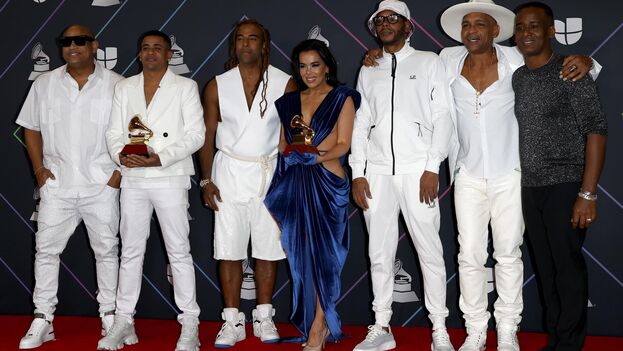
![]() 14ymedio, Carlos Alberto Montaner, Miami, 1 January 2022 — It is worth reviewing what happened in Cuba in the preceding months. Year after year, and we are already on our way to the 63rd anniversary, I have said we were near the end. I believed it, but it was not true. I thought that Fidel was interested in the fate of the Cuban people and not just doing what he wanted. Sebastián Arcos, in a statement to the BBC from Florida International University, thought otherwise. He was right. Fidel was willing, as during the Missile Crisis, for everyone to die, as long as he didn’t have to give in. I thought that reality would force him to rectify. In November 1989, communism disappeared, and on December 25, 1991, the USSR itself made an exit from history and it seemed that the Cuban dictatorship was left totally alone.
14ymedio, Carlos Alberto Montaner, Miami, 1 January 2022 — It is worth reviewing what happened in Cuba in the preceding months. Year after year, and we are already on our way to the 63rd anniversary, I have said we were near the end. I believed it, but it was not true. I thought that Fidel was interested in the fate of the Cuban people and not just doing what he wanted. Sebastián Arcos, in a statement to the BBC from Florida International University, thought otherwise. He was right. Fidel was willing, as during the Missile Crisis, for everyone to die, as long as he didn’t have to give in. I thought that reality would force him to rectify. In November 1989, communism disappeared, and on December 25, 1991, the USSR itself made an exit from history and it seemed that the Cuban dictatorship was left totally alone.
It was the time of alms and conspiracies. Salinas de Gortari gave him a political hand together with Carlos Andrés Pérez and César Gaviria. That happened in Islas Mujeres, in Mexico’s Caribbean coast, and Salinas de Gortari and Beatrice Rangel, then Minister of CAP, told me about it. Felipe González designed a reform for him and secretly sent Carlos Solchaga, his trusted economist, to carry it out. The Department of conspiracies was in charge of the Sao Paulo Forum and Lula da Silva, and they even invited the engineer Marcelo Odebrecht, a major figure in corruption. (There is a photo on the Internet of Raúl Castro, M. Odebrecht, Ramiro Valdés, and other accomplices of corruption in an image from the Sao Paulo Forum).
2021 was the emergence of the San Isidro Movement and its most visible head, Luis Manuel Otero Alcántara. They are a group of young and very poor artists, most of them mestizo, like almost the entire Cuban people, that emerged in 2018 to fight against Decree 349, that tried to further restrain young artists. Tania Bruguera immediately echoed the protests. And the rappers turned against President Díaz Canel adding an epithet, “si… gao” (“f…ked”) which even a parrot repeated incessantly without knowing that it was in danger of losing its feathers, as a Cuban saying goes.
But the greatest blow to the Cuban dictatorship was delivered in Las Vegas, United States, on November 18, despite pressure against that very well-connected government. It was there, in the Grammy Awards Galas, where “Patria y Vida” won two Latin Grammys (not one, but two: the award for the best urban song and the best song of the year). Composing and singing it are Yotuel Romero, Descemer Bueno, Mykel Osorbo, El Funky and Gente de Zona. Along with Mario Vargas Llosa I heard the song by Yotuel during a special distinction that the International Foundation for Freedom awarded to the creators of what have been called “Cuba’s second anthem.”
What has happened in Cuba so that the disaster is major and irreversible? Thirteen hundred political prisoners, almost all of them young, for demanding the freedom of Cuba in the July 11 demonstrations. An inflation in this year that is about to end of 740%, reports the Diario de Cuba, citing The Economist’s studies by country. That is an obscene figure that reflects the incompetence of the leadership that runs that poor country. There is no money or anything to buy in Cuba. Pork production has decreased by 44%, reports the digital newspaper 14yMedio and Pedro Monreal, an economist inside the system, verifies the complaint. Not in vain does Cubanet title one of its chronicles, “Empty refrigerators and broken dreams, this is how Christmas Eve was spent in Cuba.” This comes, very well selected, in the daily “packet” assembled by Miguel García Delgado, a former officer of the Second National Front of Escambray.
Reinaldo Escobar, a freelance journalist and expert on Marxism, fears that Díaz-Canel wants to revive Marxism-Leninism to escape the crisis. But there is only one way to escape this mess: to repeat, more or less, what Gorbachev said on December 25, 1991, 30 years ago. Marxism leads to failure and dictatorship. There is no other option but to cancel it completely.
Marx knew this since 1870, when William Jevons, a young British professor, published his “marginalist” conclusions on the theory of value (later reiterated, independently, by the Austrian Carl Menger and by the Frenchman Leon Walras). That is why Marx didn’t publish volumes 2 and 3 of Das Capital. It was useless. If his theory of value was false, as the Austrian economist Eugene von Böhm-Bawrek demonstrated at the time, so was surplus value and his entire hypothesis collapsed. As simple as that.
____________
COLLABORATE WITH OUR WORK: The 14ymedio team is committed to practicing serious journalism that reflects Cuba’s reality in all its depth. Thank you for joining us on this long journey. We invite you to continue supporting us by becoming a member of 14ymedio now. Together we can continue transforming journalism in Cuba.
